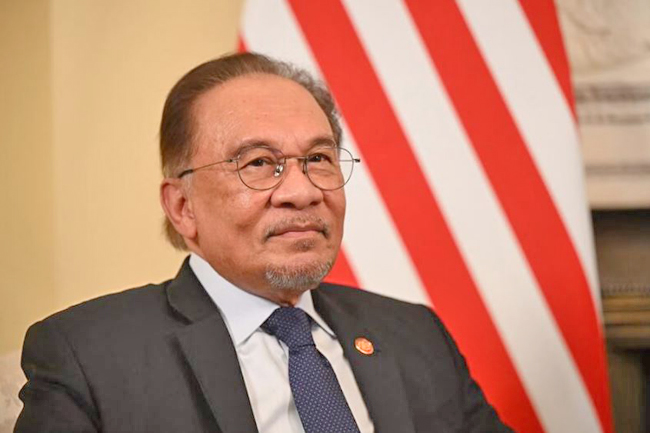ANN/THE STRAITS TIMES – Allegations of vote-rigging have marred what had appeared to be a muted leadership contest in Malaysian Prime Minister Anwar Ibrahim’s Parti Keadilan Rakyat (PKR).
Anwar and his deputy president Rafizi Ramli are set to be returned unopposed at the national level votes in May, a move party leaders say is to maintain stability in the lynchpin of his disparate multi-coalition government. But several shocks at divisional level votes, held from April 11 to 20, have raised claims of irregularities including vote-buying and outright tampering of results.
An emergency leadership council meeting to discuss the elections will be held tomorrow at the request of more than a third of council members, PKR secretary general Fuziah Salleh confirmed.
This comes after even Natural Resources and Environmental Stability Minister Nik Nazmi Nik Ahmad lost his Setiawangsa (Kuala Lumpur) division chairmanship on April 19, and other fellow vice presidents aligned to Economy Minister Rafizi were also defeated at the polls for the ruling party.
“I believe that a fair and transparent election process is the basis of Keadilan’s strength as a reformist party,” said Nazmi in a Facebook post, adding that an appeal has been filed as there are “issues that must be raised… as part of our commitment” to fair polls conducted with integrity.
Communications director Lee Chean Chung, who is appealing his loss in Petaling Jaya (Selangor) despite being its Member of Parliament (MP), told The Straits Times the results were so erratic it “was like World Cup betting”, referring to upsets at football’s top tournament that detractors attribute to match-rigging by bookies. PKR has 31 MPs, with the so-called unity government it leads controlling a two-thirds majority in the 222-strong Parliament.
PKR’s triennial polls elects officer bearers for all 222 divisions around the country before proceeding to decide the national leadership.
While Lee and several others vying to be division chiefs were defeated, their allies still dominated other positions up for grabs, leading to talk of “bodies without heads” at the party grassroots.
The controversy, if not resolved, piles on to PKR’s woes, as the government has been repeatedly criticised for the slow pace of reforms since being installed in November 2022 despite reformist ideals being at the core of the party’s identity from the day it was formed by president Anwar in 1999.
PKR’s last leadership polls were held in mid-2022 just months ahead of the general election, and saw leaders aligned to Economy Minister Rafizi take the lion’s share of top positions, including three of the four elected vice presidencies.
Despite being the party’s number two, Rafizi was handed the relatively junior portfolio of economic planning in the Anwar administration, with most of his major projects eventually handed to other Cabinet ministers.
In the 2025 election, Anwar’s allies have so far done well in the polls that utilise blockchain security measures for its electronic voting system, with a host of his political secretaries now leading their divisions and in some cases winning unopposed.
On the other hand, several MPs and state assemblymen including members of federal and state administrations lost out, including Deputy Energy Transition and Water Transformation Minister Akmal Nasir, a close protege of Rafizi.
Akmal claimed he had garnered at least 949 votes, or a simple majority of registered members based on screenshots and signed declarations collected by polling agents, but official results saw him tally just 587 votes in Johor Bahru, where he is also the MP
The petition by more than 20 central leadership councillors for an emergency meeting was filed after the first weekend of results, with hopes that a meeting would be convened before the divisional polls were concluded, top party officials told ST.

PHOTO: THE STRAITS TIMES






